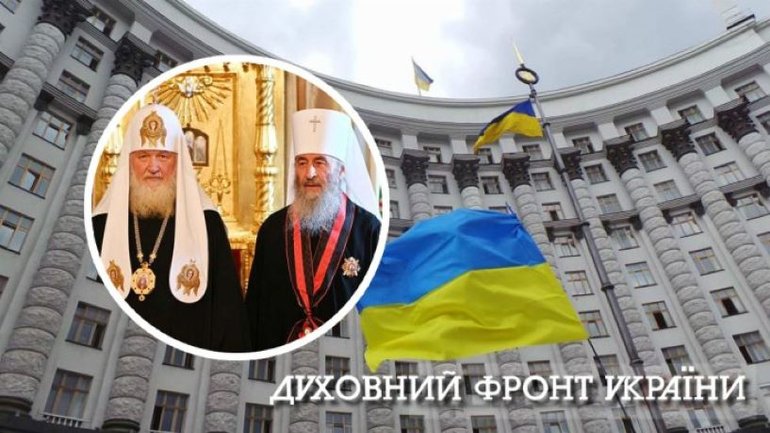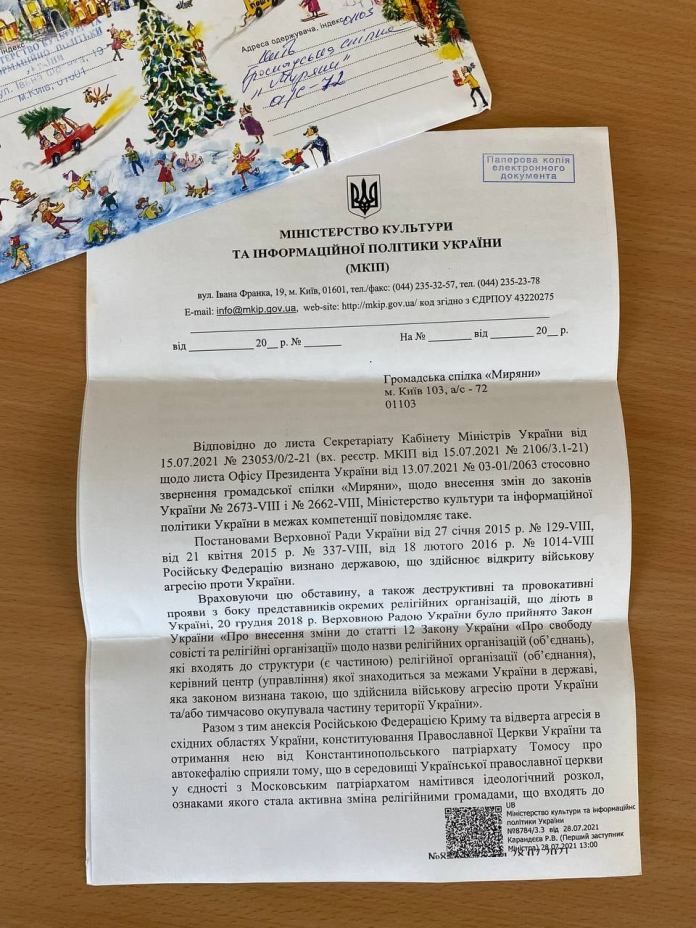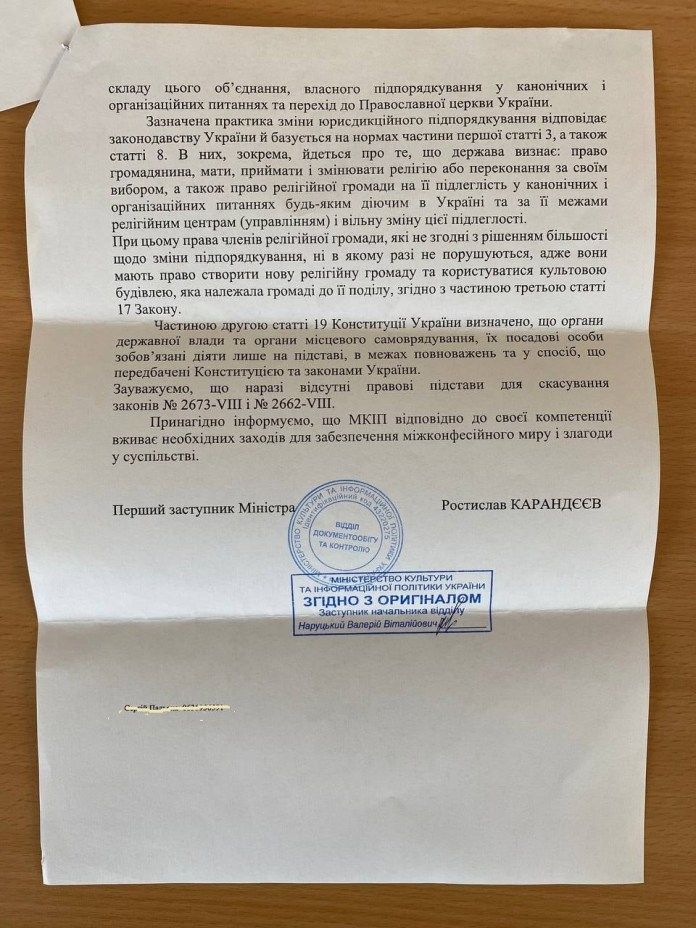The government sees no legal grounds for repealing the law on renaming the UOC-MP to the Russian Orthodox Church in Ukraine

Then they called for the abolition of the regulation of their name and the prohibition of parishes to change the jurisdiction and subordination of religious centers. This appeal was sent to the op after a rally near the Verkhovna Rada and the President's Office, which, according to the pro-Russian NGO "Lay People", redirected it to the Cabinet of Ministers of Ukraine for consideration.
In its letter, which was published on August 3 in the Telegram channel of the pro-Russian NGO "Lay People" of the Russian Orthodox Church, the Cabinet of Ministers of Ukraine defended the constitutional rights of believers and defended the pro-Ukrainian and statist position, emphasizing the Russian-Ukrainian war. In particular, the Cabinet of Ministers stated: "Currently there are no legal grounds for repealing laws No. 2673-VIII and No. 2662-VIII."
When reading the text of the response signed by First Deputy Minister of Culture and Information Policy Rostyslav Karandeyev, it becomes clear that the department understands that the change of the name "UOC-MP" to ROC in Ukraine meets all legal requirements, because the administrative center of this religious organization is located in Russia — the aggressor country, and in Crimea it has long been "renamed".
The Cabinet of Ministers also supported the free expression of the will of parishes which, by a majority vote, decided to join the Orthodox Church of Ukraine, leaving the Moscow Patriarchate.
In particular, the report says that the law on amending the name of the Russian Orthodox Church (or renaming) was adopted in connection with "destructive and provocative manifestations on the part of representatives of certain religious organizations operating in Ukraine," and the annexation of churches to the OCU began to occur due to an "ideological split in the environment" of the Russian Orthodox Church.
"The Russian Federation is recognized as a state that wages open military aggression against Ukraine. Given this circumstance, as well as destructive and provocative manifestations on the part of representatives of certain religious organizations operating in Ukraine, December 20, 2018. The Verkhovna Rada of Ukraine has adopted the Law of Ukraine "On amendments to Article 12 of the law of Ukraine "On freedom of conscience and religious organizations regarding the name of religious organizations (associations) that make part of the structure of a religious organization (association), the governing center (management) of which is located outside of Ukraine in a state that is recognized by law as having committed military aggression against Ukraine and/or temporarily occupied part of the territory of Ukraine"," the letter of the Cabinet of Ministers says.
They also recalled that the annexation of Crimea by the Russian Federation and outright aggression in the eastern regions of Ukraine, the Constitution of the Orthodox Church of Ukraine and its receipt of the Tomos of Autocephaly from the Patriarchate of Constantinople contributed to the fact that "an ideological split was emerging among the Ukrainian Orthodox Church in unity with the Moscow Patriarchate, the signs of which were the active change of religious communities that are part of this association of their own subordination in canonical and organizational matters and the transition to the Orthodox Church of Ukraine."
"This practice of changing jurisdictional subordination complies with the legislation of Ukraine and is based on the norms of part one of Article 3, as well as Article 8. They, in particular, say that the state recognizes: the right of a citizen to have, accept and change a religion or belief of his choice, as well as the right of a religious community to its subordination in canonical and organizational matters to any religious centers (departments) operating in Ukraine and abroad and the free change of this subordination," the Cabinet of Ministers stressed.
At the same time, the rights of members of a religious community who do not agree with the majority's decision to change their subordination are not violated in any case, because they have the right to create a new religious community and use a religious building that belonged to the community before its division, according to part three of Article 17 of the law, " the Cabinet of Ministers explained.
"Along the way, we inform you that the Icip (Ministry of Culture and Information Policy of Ukraine — ed.), in accordance with its competence, takes the necessary measures to ensure interfaith peace and harmony in society," the letter concludes.












